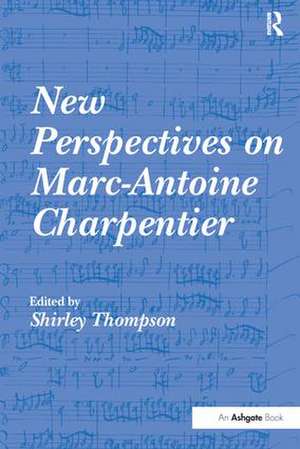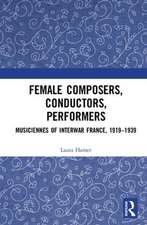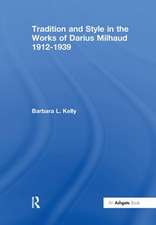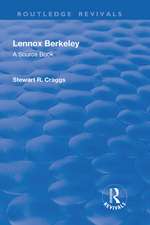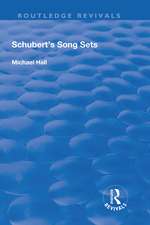New Perspectives on Marc-Antoine Charpentier
Editat de Shirley Thompsonen Limba Engleză Paperback – 9 sep 2016
| Toate formatele și edițiile | Preț | Express |
|---|---|---|
| Paperback (1) | 474.14 lei 6-8 săpt. | |
| Taylor & Francis – 9 sep 2016 | 474.14 lei 6-8 săpt. | |
| Hardback (1) | 819.90 lei 6-8 săpt. | |
| Taylor & Francis – 28 apr 2010 | 819.90 lei 6-8 săpt. |
Preț: 474.14 lei
Nou
Puncte Express: 711
Preț estimativ în valută:
90.74€ • 94.38$ • 74.91£
90.74€ • 94.38$ • 74.91£
Carte tipărită la comandă
Livrare economică 14-28 aprilie
Preluare comenzi: 021 569.72.76
Specificații
ISBN-13: 9781138249684
ISBN-10: 1138249688
Pagini: 414
Dimensiuni: 156 x 234 x 24 mm
Greutate: 0.57 kg
Ediția:1
Editura: Taylor & Francis
Colecția Routledge
Locul publicării:Oxford, United Kingdom
ISBN-10: 1138249688
Pagini: 414
Dimensiuni: 156 x 234 x 24 mm
Greutate: 0.57 kg
Ediția:1
Editura: Taylor & Francis
Colecția Routledge
Locul publicării:Oxford, United Kingdom
Cuprins
Contents: Foreword, H. Wiley Hitchcock; Preface; Charting Charpentier's 'worlds' through his Mélanges, Patricia M. Ranum; Charpentier's void notation: the Italian background and its implications, Graham Sadler; The descending minor tetrachord in France: an emblem expanded, Lois Rosow; Repentance, piety and praise: sensual imagery and musical depiction in the petits motets of Marc-Antoine Charpentier, C. Jane Gosine; A question of genre: Charpentier's Messe pour Plusieurs Instruments au lieu des Orgues (H513), David Ponsford; Charpentier's music at court: the singers and instrumentalists of the Chapelle Royale, 1663-1683 and beyond, Anthea Smith; Performance practices at the Théâtre de Guénégaud and the Comédie-Française: evidence from Charpentier's Melanges autographes, John S. Powell; Une source peut en cacher une autre': added preludes and instrumental cues in the Mélanges, Catherine Cessac; The historical implications of a distinctive scoring: Charpentier's 6-voice motets for Mademoiselle de Guise, Théodora Psychoyou; Observations on Charpentier's compositional process: corrections in the Mélanges, Herbert Schneider; Médée within the repertory of the tragédie en musique: intertextual links and the 'posterity' of Charpentier's opera, Benjamin Pintiaux; The nature of fame: reflections on Charpentier's Les Plaisirs de Versailles and Lalande's Les Fontaines de Versailles, Peter Roennfeldt; Charpentier's Motets melêz de Symphonie: a nephew's tribute, Shirley Thompson; Appendix; Bibliography; Indexes.
Notă biografică
Dr Shirley Thompson is Director of Postgraduate Studies at Birmingham Conservatoire, UK
Recenzii
’All the contributions are worth reading and not unapproachable. ...Thanks particularly to Les Arts Florissants, Charpentier's music is widely circulated on CD, and anyone performing his music would benefit from investigating this excellent publication. (Scholars won't need the commendation.)’
—Early Music Review
'[T]he book makes a significant contribution to Charpentier research.'
—Notes
'... comprehensive and well-edited collection, providing a wealth of background material for music-lovers, performers and musicologists alike.'
—Early Music
'... an important and original volume.'
—The Consort
'... a valuable contribution to Charpentier and his musical world.'
—Revue de Musicologie
'This volume is an important addition to the corpus of scholarly work on Charpentier and the French Baroque, accessible to both connoisseurs and newcomers to this music, and likely to inspire new research of equal quality in the future.'
—Journal of Seventeenth-Century Music
’All the contributions are worth reading and not unapproachable. ...Thanks particularly to Les Arts Florissants, Charpentier's music is widely circulated on CD, and anyone performing his music would benefit from investigating this excellent publication. (Scholars won't need the commendation.)’ Early Music Review '[T]he book makes a significant contribution to Charpentier research.' Notes '... comprehensive and well-edited collection, providing a wealth of background material for music-lovers, performers and musicologists alike.' Early Music '... an important and original volume.' The Consort '... a valuable contribution to Charpentier and his musical world.' Revue de Musicologie
—Early Music Review
'[T]he book makes a significant contribution to Charpentier research.'
—Notes
'... comprehensive and well-edited collection, providing a wealth of background material for music-lovers, performers and musicologists alike.'
—Early Music
'... an important and original volume.'
—The Consort
'... a valuable contribution to Charpentier and his musical world.'
—Revue de Musicologie
'This volume is an important addition to the corpus of scholarly work on Charpentier and the French Baroque, accessible to both connoisseurs and newcomers to this music, and likely to inspire new research of equal quality in the future.'
—Journal of Seventeenth-Century Music
’All the contributions are worth reading and not unapproachable. ...Thanks particularly to Les Arts Florissants, Charpentier's music is widely circulated on CD, and anyone performing his music would benefit from investigating this excellent publication. (Scholars won't need the commendation.)’ Early Music Review '[T]he book makes a significant contribution to Charpentier research.' Notes '... comprehensive and well-edited collection, providing a wealth of background material for music-lovers, performers and musicologists alike.' Early Music '... an important and original volume.' The Consort '... a valuable contribution to Charpentier and his musical world.' Revue de Musicologie
Descriere
The tercentenary of Marc-Antoine Charpentier's death in 2004 stimulated a surge of activity on the part of performers and scholars, confirming the modern assessment of Charpentier (1643-1704) as one of the most important and inventive composers of the French Baroque. The present book illustrates not only the sheer variety of research strands currently pursued, but also the way in which these strands frequently intertwine and generate the potential for future research. Between them, they examine facets of the composer's compositional language and process, aspects of his performance practice and notation, the contexts within which he worked, and the nature of his legacy. The appendix contains a transcription of the inventory of Charpentier's manuscripts prepared when their sale to the Royal Library was negotiated in 1726 - an invaluable research tool, as numerous chapters in the book demonstrate. The wide variety of topics covered here will appeal both to readers interested in Charpentier's music and to those with a broader interest in the music and culture of the French Baroque, including aspects of patronage, church and theatre. Far from treating his output in isolation, this book places it in the wider context alongside such composers as Lully, Lalande, Marais, François Couperin and Rameau; it also views the composer in relation to his Italian training. In the process, the under-examined question of influence - who influenced Charpentier? whom did he influence? - repeatedly comes to the fore.
